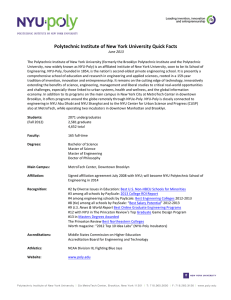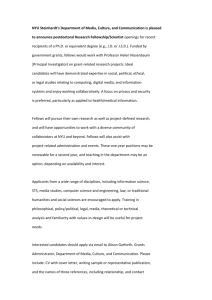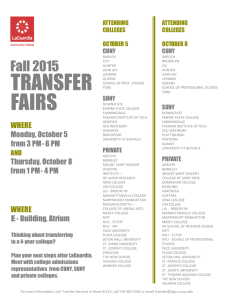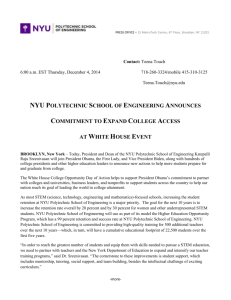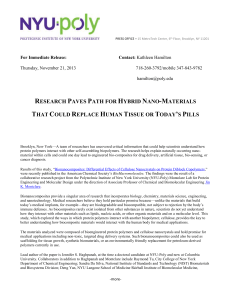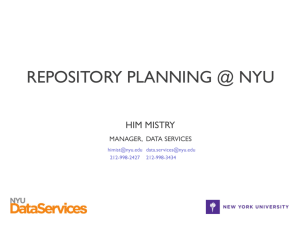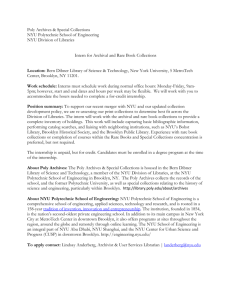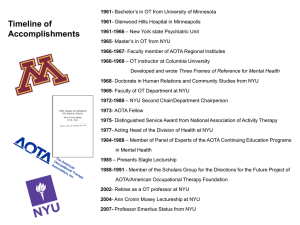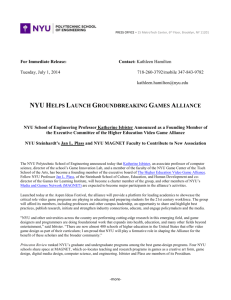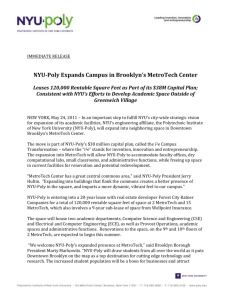- NYU Tandon School of Engineering
advertisement
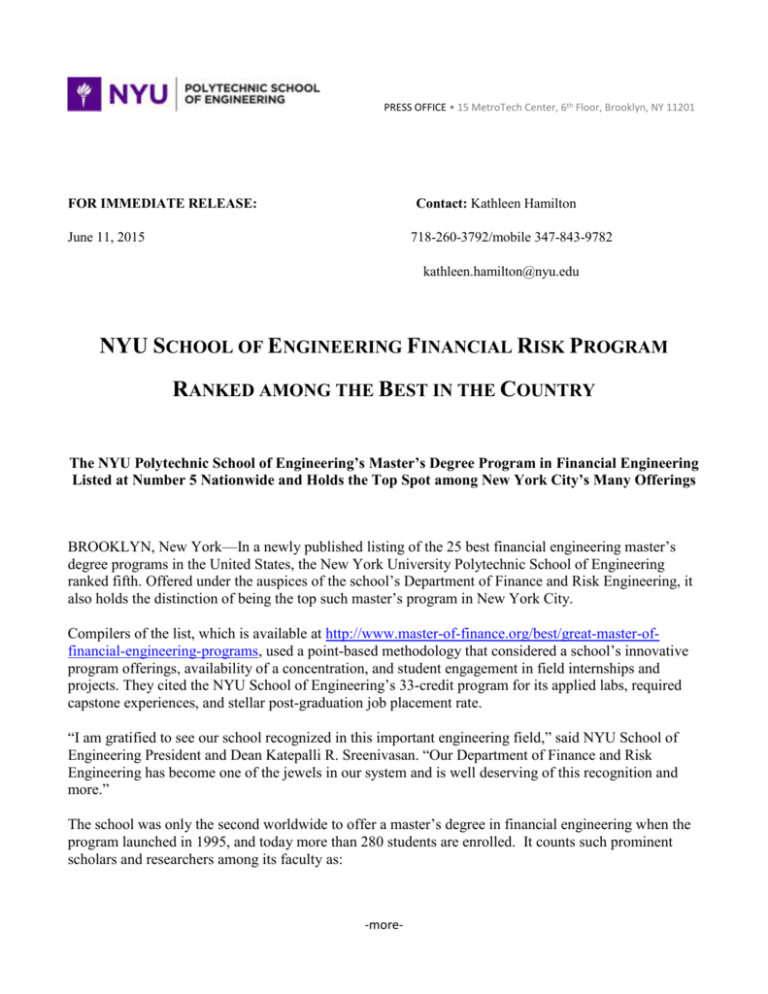
PRESS OFFICE • 15 MetroTech Center, 6th Floor, Brooklyn, NY 11201 FOR IMMEDIATE RELEASE: Contact: Kathleen Hamilton June 11, 2015 718-260-3792/mobile 347-843-9782 kathleen.hamilton@nyu.edu NYU SCHOOL OF ENGINEERING FINANCIAL RISK PROGRAM RANKED AMONG THE BEST IN THE COUNTRY The NYU Polytechnic School of Engineering’s Master’s Degree Program in Financial Engineering Listed at Number 5 Nationwide and Holds the Top Spot among New York City’s Many Offerings BROOKLYN, New York—In a newly published listing of the 25 best financial engineering master’s degree programs in the United States, the New York University Polytechnic School of Engineering ranked fifth. Offered under the auspices of the school’s Department of Finance and Risk Engineering, it also holds the distinction of being the top such master’s program in New York City. Compilers of the list, which is available at http://www.master-of-finance.org/best/great-master-offinancial-engineering-programs, used a point-based methodology that considered a school’s innovative program offerings, availability of a concentration, and student engagement in field internships and projects. They cited the NYU School of Engineering’s 33-credit program for its applied labs, required capstone experiences, and stellar post-graduation job placement rate. “I am gratified to see our school recognized in this important engineering field,” said NYU School of Engineering President and Dean Katepalli R. Sreenivasan. “Our Department of Finance and Risk Engineering has become one of the jewels in our system and is well deserving of this recognition and more.” The school was only the second worldwide to offer a master’s degree in financial engineering when the program launched in 1995, and today more than 280 students are enrolled. It counts such prominent scholars and researchers among its faculty as: -more- Distinguished Professor Nassim Nicholas Taleb, who is renowned for his best-selling books Fooled by Randomness: The Hidden Role of Chance in Life and in the Markets, The Black Swan: The Impact of the Highly Improbable, and Antifragile: Things That Gain from Disorder Department Chair and Topfer Distinguished Professor Charles S. Tapiero, whose seminal contributions to the field were celebrated in 2014 with the publication of Models and Methods in Economics and Management Science: Essays in Honor of Charles S. Tapiero The department’s newest member is Assistant Professor Andrew Papanicolaou, previously of the University of Sydney, who will joining the faculty in September 2015. His research focuses on various areas of probability theory, including filtering theory and applications, multiscale asymptotics, and stochastic control. Students follow one of four different tracks as they earn their degrees—potentially within just three semesters: Financial Markets and Corporate Finance Computational Finance Technology and Algorithmic Finance Risk Finance A wide variety of courses—reflecting changing regulations and industry demands— are offered, along with four types of capstone experiences: theses, projects, special topics, and internships. Additionally, students must successfully complete the Bloomberg Essentials Online Training Program. It is the first curriculum to be certified by the International Association of Financial Engineers that offers a graduate program either on a full-time or part-time basis. For more information, visit http://engineering.nyu.edu/academics/departments/finance. The NYU Polytechnic School of Engineering dates to 1854, when the NYU School of Civil Engineering and Architecture as well as the Brooklyn Collegiate and Polytechnic Institute (widely known as Brooklyn Poly) were founded. Their successor institutions merged in January 2014 to create a comprehensive school of education and research in engineering and applied sciences, rooted in a tradition of invention, innovation and entrepreneurship. In addition to programs at its main campus in downtown Brooklyn, it is closely connected to engineering programs in NYU Abu Dhabi and NYU Shanghai, and it operates business incubators in downtown Manhattan and Brooklyn. For more information, visit http://engineering.nyu.edu. ###
